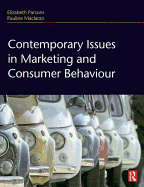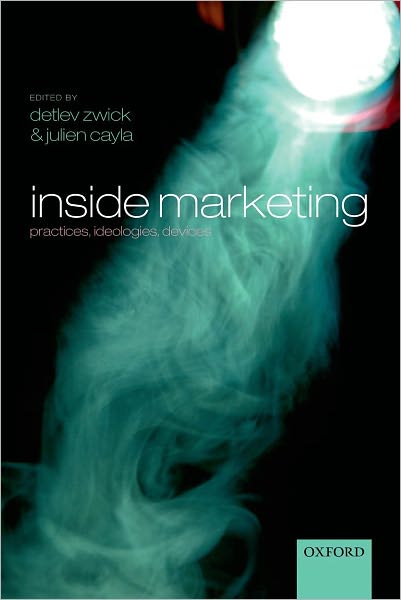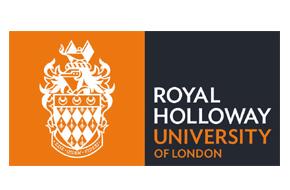For more information about Royal Holloway, please see this promotional video. To see a promotional video for the MA Consumption, Markets & Culture see here. To see a promotional video for the Royal Holloway School of Management, click here.
For more information about the Royal Holloway MA Marketing and MA Consumption, Culture & Marketing and the application process see here.
To get an understanding of the unique values that underly the MA Marketing and MA Consumption, Culture & Marketing programme please read these blog posts: Value of Scholarly Values, Importance of Reading and Morris Holbrook and Business Interest in Education.
To see examples of previous students work please click through to see the work of Yelena Sherbakov, Igor Korovenkov, Klara Scheurenbrand, Christina Demertsidou, Liliya Tokmantseva, Hafez Rafirasme, Asya Medvedeva, Vera Hoelscher, Milena Citton, Tracey Wechie, Hector Murphy and Alejandro Gallindo Diego.
Wednesday, 11 July 2012
Monday, 9 July 2012
Proofreading for Non-English Speaking Students by Mike Faulkner
As a
professional proofreader, some of my work is in the area of assistance for
non-English speaking students in their written work. This is mildly
controversial, since academic staff are reluctant to put students in a position
where the boundary is blurred between the student’s work and someone else's;
and I must say I have sympathy with that reluctance. Plagiarism and passing-off
are real problems, especially in the internet age. I was asked recently to proofread
a series of papers for a Spanish medical student (or students – I never
discovered which), where the brief was to check for grammar, punctuation,
spelling and content. Content, particularly in the context of a
university course, is not the province of a professional proofreader, though it
may be the province of an unprofessional one – no doubt somebody got the job!
 |
| Mike Faulkner |
From the
student's point of view, there isn't always a problem because on-campus help is
available at many universities, often under the auspices of the International
Office, Grad School or Students’ Union. At Edinburgh, for example, the
Students' Association operates a Peer Proofreading service where volunteers,
who are vetted for aptitude, accept electronic versions of assignments and give
them the once-over for spelling and use of English. At Manchester, students are
offered one-off academic writing tutorials. If you're lucky enough to be a
Chinese student at University of Regina, Saskatchewan, where there are strong
historical ties with China, you will get classes in English as a second
language, and assistance with written work in all courses and at all levels.
That said,
where on-campus help is patchy, limited or unavailable I have sympathy with the
non-English speaking student who may get along well enough in conversation, but
who finds it hard to make an argument on paper using consistently
well-structured, grammatically correct English with just the right shade of
meaning – not to mention the unfortunate tutor who, in order to mark fairly,
may have to work hard to get at the arguments at all. Take this opening
sentence of a paper on Long Tail Marketing (the subject is spurious but the
structure of the sentence is from an actual paper):-
'The long tail of marketing has reached unprecedented influence among the world in recent decades more than
ever.'
The meaning is clear, but the sentence
is grammatically problematic and not very elegant. The student may well go on
to make a persuasive argument, but there’s a danger that the limitations of his
or her vocabulary will obscure it. As a proofreader, if I were offered this
sentence I would want to render the prose more clearly and excise the tautology
of the last three words, ending up with something like this:-
'In recent decades, the concept of the
“long tail” of marketing has gained unprecedented currency around the world.'
But it's important to know when to stop.
Were it not the premise of the whole piece, I might be tempted to check whether
the writer meant 'Long Tail Marketing' or the 'long tail of marketing', which has
a subtly different meaning. Often the writer will use buzzwords or forms of
expression which seem out of place but which turn out to be particular to the
discipline in which he or she is training, so what appears to be a wrong
construction may be nothing of the sort. Even if it is wrong, it may well be the case that the student should have got
it right; my point being that, either way, it’s likely to be outwith the scope
of proofreading. (Which brings me to another, similar, point: in the previous
sentence I used the word ‘outwith’, which you won’t find in every dictionary –
interestingly, it’s in Oxford, but not Chambers – so there’s another case of,
‘if it ain’t bust, don’t fix it’.)
My advice to non-English speaking
students who are having difficulty is this: first, check out the assistance
available within the university; if that assistance is inadequate or
non-existent, or if for some other reason you are unwilling to avail yourself
of it (I know from reading – actually, proofreading – sociology papers that some students are
reluctant, even embarrassed, to share what they see as a 'problem' with their
peers), then I would say, discuss the options with your tutor and seek help
from a professional proofreader only if you are given their blessing.
If you are interested in the specifics
of what proofreading involves, there is a brief overview on the Proofreading
page of my website at www.thebluecabin.com/proofreading.
Please ignore the ‘Light edit’ option which, as I hope I’ve made clear, goes
beyond what can properly be offered to university students!
Thursday, 5 July 2012
Advance Readings For MA Marketing
For those students about to commence studies in the Royal Holloway MA Marketing, I strongly urge you to conduct advance reading. This will prepare you for the way that we approach the subject of marketing and also, hopefully, create a common body of knowledge among the students which will facilitate better class discussion. Therefore I recommend the following texts:
1. Critical Marketing by Chris Hackley
 This book is the essential reading for the Critical Marketing core module that will be presented by Chris Hackley. The emphasis on critical approaches, not just managerial application, is a distinctive aspect of the Royal Holloway MA Marketing and this book serves as a very helpful introduction that will allow students to orientate themselves around various parts of the programme content. In particular the book emphasises that marketing should be studied and understood with an intellectual robustness and roundedness that one would expect of any humanities or social science field of study.
This book is the essential reading for the Critical Marketing core module that will be presented by Chris Hackley. The emphasis on critical approaches, not just managerial application, is a distinctive aspect of the Royal Holloway MA Marketing and this book serves as a very helpful introduction that will allow students to orientate themselves around various parts of the programme content. In particular the book emphasises that marketing should be studied and understood with an intellectual robustness and roundedness that one would expect of any humanities or social science field of study.
2. Contemporary Issues in Marketing & Consumer Behaviour by Liz Parsons & Pauline Maclaran
 This textbook is used by Pauline Maclaran as essential reading for the Contemporary Issues in Consumer Research core module. The text provides an overview of a diverse range of societal issues raised by marketing activity and contains contributions from a series of scholars. The text looks at the history of marketing thought, ethical consequences of marketing and gender implications among many other topics. In short the book provides a highly eclectic set of commentaries and analyses about the field of marketing and its consequences.
This textbook is used by Pauline Maclaran as essential reading for the Contemporary Issues in Consumer Research core module. The text provides an overview of a diverse range of societal issues raised by marketing activity and contains contributions from a series of scholars. The text looks at the history of marketing thought, ethical consequences of marketing and gender implications among many other topics. In short the book provides a highly eclectic set of commentaries and analyses about the field of marketing and its consequences.
3. The Rise of Brands by Liz Moor
This book provides a wonderful overview about brands and analyses them from a variety of viewpoints and brings a theoretical richness which far exceeds the conventional framing of brands. Brands are reviewed historically and understood as ideological technologies during an era of neo-liberalism.
4. Brands: Meaning and Value in Media Culture by Adam Arvidsson
 From years of teaching brands and branding it is clear that the concepts that students find most difficult to comprehend are the very theories that stem from this book. It is indeed a difficult read but bear with it because the analysis of branding that is presented is an excellent exploration into how we can understand value with reference to the vagueness and strangeness of brands as immaterial social technologies. In an age where brands generate gigantic financial evaluations and can be thought of as the chief asset of organisations, Arvidsson's book works through the mechanics of how value can be understood. Yes, this is a difficult read but if you can get a good grasp of this theory, you will find the course much easier to engage with.
From years of teaching brands and branding it is clear that the concepts that students find most difficult to comprehend are the very theories that stem from this book. It is indeed a difficult read but bear with it because the analysis of branding that is presented is an excellent exploration into how we can understand value with reference to the vagueness and strangeness of brands as immaterial social technologies. In an age where brands generate gigantic financial evaluations and can be thought of as the chief asset of organisations, Arvidsson's book works through the mechanics of how value can be understood. Yes, this is a difficult read but if you can get a good grasp of this theory, you will find the course much easier to engage with.

5. Inside Marketing: Practices, Ideologies & Devices by Detlev Zwick & Julien Cayla
While this book is not attached to any particular module and is indeed outrageously expensive (sorry), it provides an excellent series of commentaries that explore how marketing functions and is practiced. You can read my full review of the book here.
(Note - Julien has posted in comments below that the book is available for £20 via the Book Depository)
1. Critical Marketing by Chris Hackley
 This book is the essential reading for the Critical Marketing core module that will be presented by Chris Hackley. The emphasis on critical approaches, not just managerial application, is a distinctive aspect of the Royal Holloway MA Marketing and this book serves as a very helpful introduction that will allow students to orientate themselves around various parts of the programme content. In particular the book emphasises that marketing should be studied and understood with an intellectual robustness and roundedness that one would expect of any humanities or social science field of study.
This book is the essential reading for the Critical Marketing core module that will be presented by Chris Hackley. The emphasis on critical approaches, not just managerial application, is a distinctive aspect of the Royal Holloway MA Marketing and this book serves as a very helpful introduction that will allow students to orientate themselves around various parts of the programme content. In particular the book emphasises that marketing should be studied and understood with an intellectual robustness and roundedness that one would expect of any humanities or social science field of study.2. Contemporary Issues in Marketing & Consumer Behaviour by Liz Parsons & Pauline Maclaran
 This textbook is used by Pauline Maclaran as essential reading for the Contemporary Issues in Consumer Research core module. The text provides an overview of a diverse range of societal issues raised by marketing activity and contains contributions from a series of scholars. The text looks at the history of marketing thought, ethical consequences of marketing and gender implications among many other topics. In short the book provides a highly eclectic set of commentaries and analyses about the field of marketing and its consequences.
This textbook is used by Pauline Maclaran as essential reading for the Contemporary Issues in Consumer Research core module. The text provides an overview of a diverse range of societal issues raised by marketing activity and contains contributions from a series of scholars. The text looks at the history of marketing thought, ethical consequences of marketing and gender implications among many other topics. In short the book provides a highly eclectic set of commentaries and analyses about the field of marketing and its consequences.3. The Rise of Brands by Liz Moor
This book provides a wonderful overview about brands and analyses them from a variety of viewpoints and brings a theoretical richness which far exceeds the conventional framing of brands. Brands are reviewed historically and understood as ideological technologies during an era of neo-liberalism.
4. Brands: Meaning and Value in Media Culture by Adam Arvidsson
 From years of teaching brands and branding it is clear that the concepts that students find most difficult to comprehend are the very theories that stem from this book. It is indeed a difficult read but bear with it because the analysis of branding that is presented is an excellent exploration into how we can understand value with reference to the vagueness and strangeness of brands as immaterial social technologies. In an age where brands generate gigantic financial evaluations and can be thought of as the chief asset of organisations, Arvidsson's book works through the mechanics of how value can be understood. Yes, this is a difficult read but if you can get a good grasp of this theory, you will find the course much easier to engage with.
From years of teaching brands and branding it is clear that the concepts that students find most difficult to comprehend are the very theories that stem from this book. It is indeed a difficult read but bear with it because the analysis of branding that is presented is an excellent exploration into how we can understand value with reference to the vagueness and strangeness of brands as immaterial social technologies. In an age where brands generate gigantic financial evaluations and can be thought of as the chief asset of organisations, Arvidsson's book works through the mechanics of how value can be understood. Yes, this is a difficult read but if you can get a good grasp of this theory, you will find the course much easier to engage with.
5. Inside Marketing: Practices, Ideologies & Devices by Detlev Zwick & Julien Cayla
While this book is not attached to any particular module and is indeed outrageously expensive (sorry), it provides an excellent series of commentaries that explore how marketing functions and is practiced. You can read my full review of the book here.
(Note - Julien has posted in comments below that the book is available for £20 via the Book Depository)
Subscribe to:
Comments (Atom)




